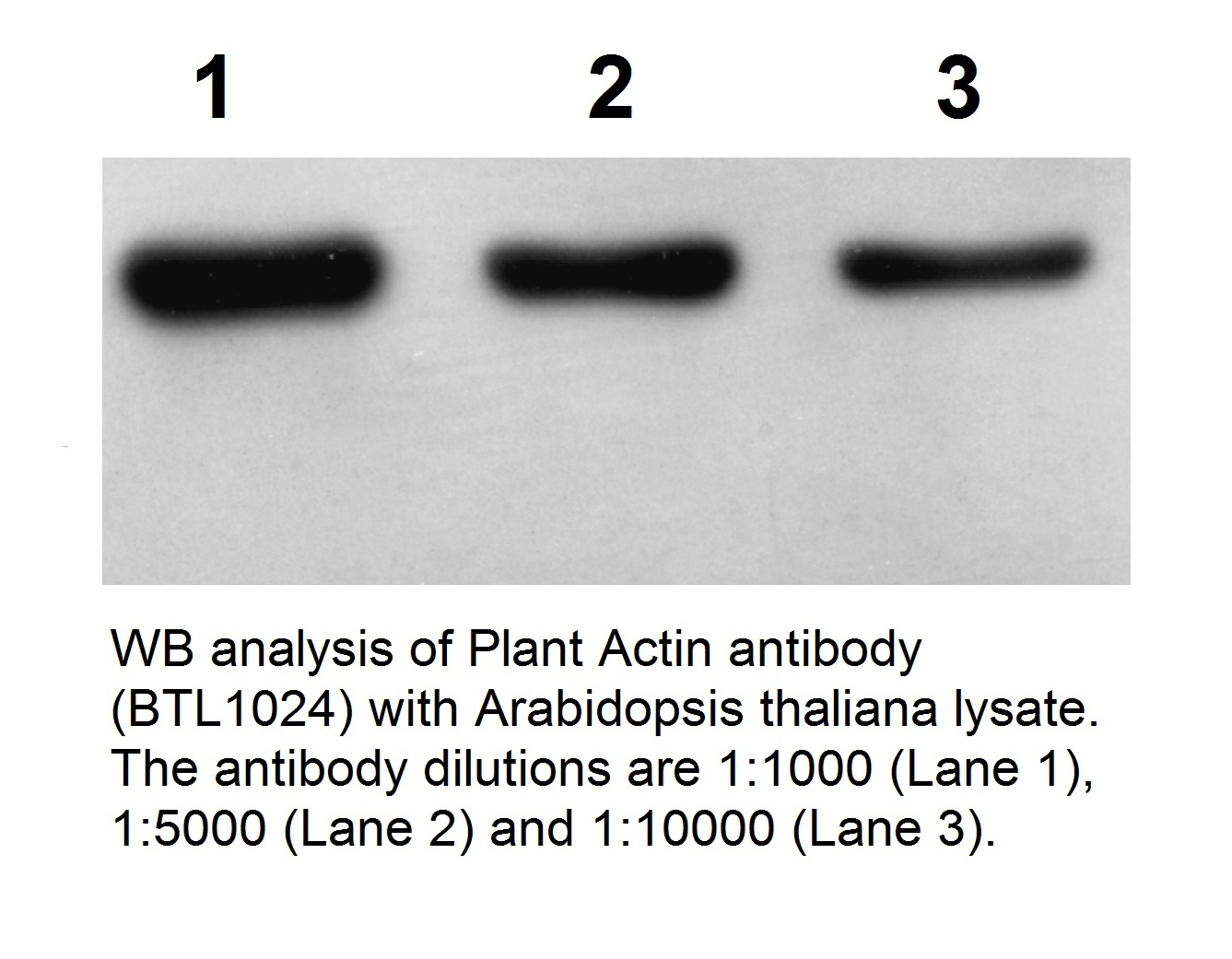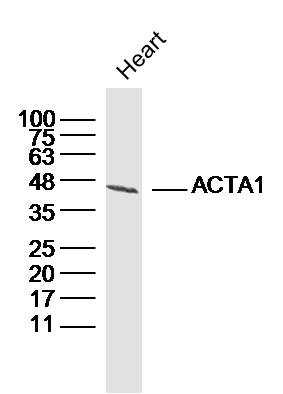Actin antibody [AC-40] (Cy3)
GTX11004
ApplicationsImmunoFluorescence, Western Blot, ImmunoCytoChemistry
Product group Antibodies
ReactivityBovine, Canine, Chicken, Fish, Guinea Pig, Goat, Hamster, Human, Molluscs, Mouse, Porcine, Rabbit, Reptile, Rat, Sheep, Xenopus
TargetACTA1
Overview
- SupplierGeneTex
- Product NameActin antibody [AC-40] (Cy3)
- Delivery Days Customer9
- Application Supplier NoteICC/IF: 1:75. *Optimal dilutions/concentrations should be determined by the researcher.Not tested in other applications.
- ApplicationsImmunoFluorescence, Western Blot, ImmunoCytoChemistry
- CertificationResearch Use Only
- ClonalityMonoclonal
- Clone IDAC-40
- ConjugateCy3
- Gene ID58
- Target nameACTA1
- Target descriptionactin alpha 1, skeletal muscle
- Target synonymsACTA, ASMA, CFTD, CFTD1, CFTDM, CMYO2A, CMYO2B, CMYO2C, CMYP2A, CMYP2B, CMYP2C, MPFD, NEM1, NEM2, NEM3, SHPM, actin, alpha skeletal muscle, nemaline myopathy type 3
- HostMouse
- IsotypeIgG2a
- Protein IDP68133
- Protein NameActin, alpha skeletal muscle
- Scientific DescriptionThe two major cytoskeletal proteins implicated in cell motility are actin and myosin. Actin and myosin are constituents of many cell types and are involved in a myriad of cellular processes including locomotion, secretion, cytoplasmic streaming, phagocytosis and cytokinesis. Although actin is one of the most conserved eukaryotic proteins, it is expressed in mammals and birds as at least six isoforms characterized by electrophoresis and amino acid sequence analysis. Four of them represent the differentiation markers of muscle tissues and two are found in practically all cells.
- ReactivityBovine, Canine, Chicken, Fish, Guinea Pig, Goat, Hamster, Human, Molluscs, Mouse, Porcine, Rabbit, Reptile, Rat, Sheep, Xenopus
- Storage Instruction2°C to 8°C
- UNSPSC12352203
References
- Guo CJ, Cao XL, Zhang YF, et al. Exosome-mediated inhibition of microRNA-449a promotes the amplification of mouse retinal progenitor cells and enhances their transplantation in retinal degeneration mouse models. Mol Ther Nucleic Acids. 2023,31:763-778. doi: 10.1016/j.omtn.2023.02.015Read this paper
- Zhang Y, Bao S, Wang D, et al. Downregulation of KLF10 contributes to the regeneration of survived renal tubular cells in cisplatin-induced acute kidney injury via ZBTB7A-KLF10-PTEN axis. Cell Death Discov. 2023,9(1):82. doi: 10.1038/s41420-023-01381-6Read this paper
- Wei MF, Cheng CH, Wen SY, et al. Atorvastatin Attenuates Radiotherapy-Induced Intestinal Damage through Activation of Autophagy and Antioxidant Effects. Oxid Med Cell Longev. 2022,2022:7957255. doi: 10.1155/2022/7957255Read this paper
- Moyzis AG, Lally NS, Liang W, et al. Mcl-1 Differentially Regulates Autophagy in Response to Changes in Energy Status and Mitochondrial Damage. Cells. 2022,11(9). doi: 10.3390/cells11091469Read this paper
- Ma YX, Jiao K, Wan QQ, et al. Silicified collagen scaffold induces semaphorin 3A secretion by sensory nerves to improve in-situ bone regeneration. Bioact Mater. 2022,9:475-490. doi: 10.1016/j.bioactmat.2021.07.016Read this paper
- Bease AG, Blackburn EA, Chintoan-Uta C, et al. Activity of Lymphostatin, A Lymphocyte Inhibitory Virulence Factor of Pathogenic Escherichia coli, is Dependent on a Cysteine Protease Motif. J Mol Biol. 2021,433(19):167200. doi: 10.1016/j.jmb.2021.167200Read this paper
- Liu H, Wang G. MicroRNA-301a-3p promotes triple-negative breast cancer progression through downregulating MEOX2. Exp Ther Med. 2021,22(3):945. doi: 10.3892/etm.2021.10377Read this paper
- Wang HC, Chan LP, Wu CC, et al. Silencing DNA Polymerase β Induces Aneuploidy as a Biomarker of Poor Prognosis in Oral Squamous Cell Cancer. Int J Mol Sci. 2021,22(5). doi: 10.3390/ijms22052402Read this paper
- Moyzis AG, Lally NS, Liang W, et al. Mcl-1-mediated mitochondrial fission protects against stress but impairs cardiac adaptation to exercise. J Mol Cell Cardiol. 2020,146:109-120. doi: 10.1016/j.yjmcc.2020.07.009Read this paper
- Zhang Y, Zhang Q, Li L, et al. Arginine methylation of APE1 promotes its mitochondrial translocation to protect cells from oxidative damage. Free Radic Biol Med. 2020,158:60-73. doi: 10.1016/j.freeradbiomed.2020.06.027Read this paper



![IHC-Fr analysis of rat spleen tissue using GTX10763 Actin antibody [AC-40].](https://www.genetex.com/upload/website/prouct_img/normal/GTX10763/GTX10763_20190815_IHC-Fr_1_w_23060120_507.webp)
![ICC/IF analysis of Rat2 cells using GTX11003 Actin antibody [AC-40] at 1:250 (red) with DAPI (blue). Cells were fixed and permeabilized with methanol followed by methanol:acetone.](https://www.genetex.com/upload/website/prouct_img/normal/GTX11003/GTX11003_20170605_ICCIF_w_23060500_976.webp)

